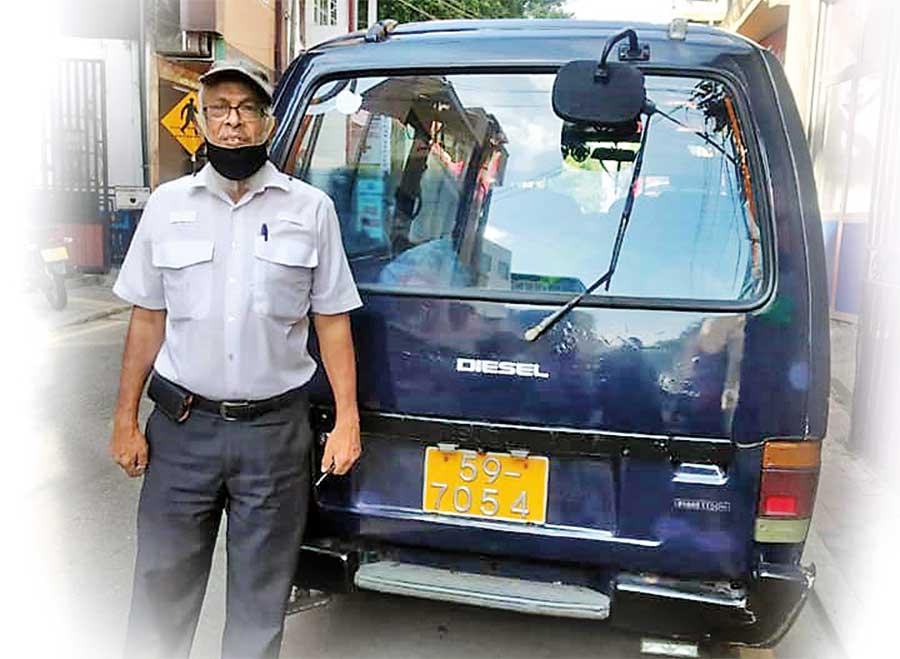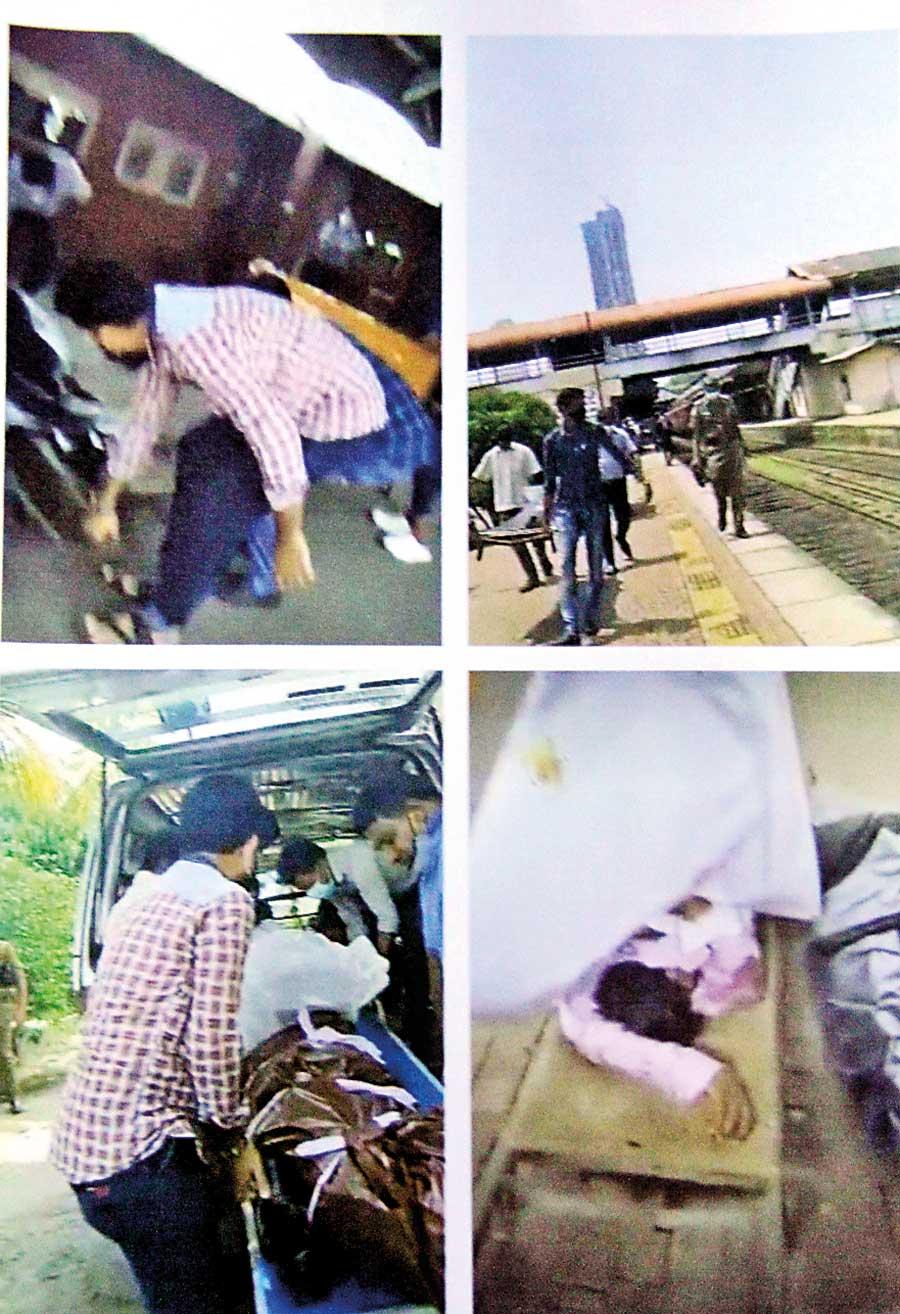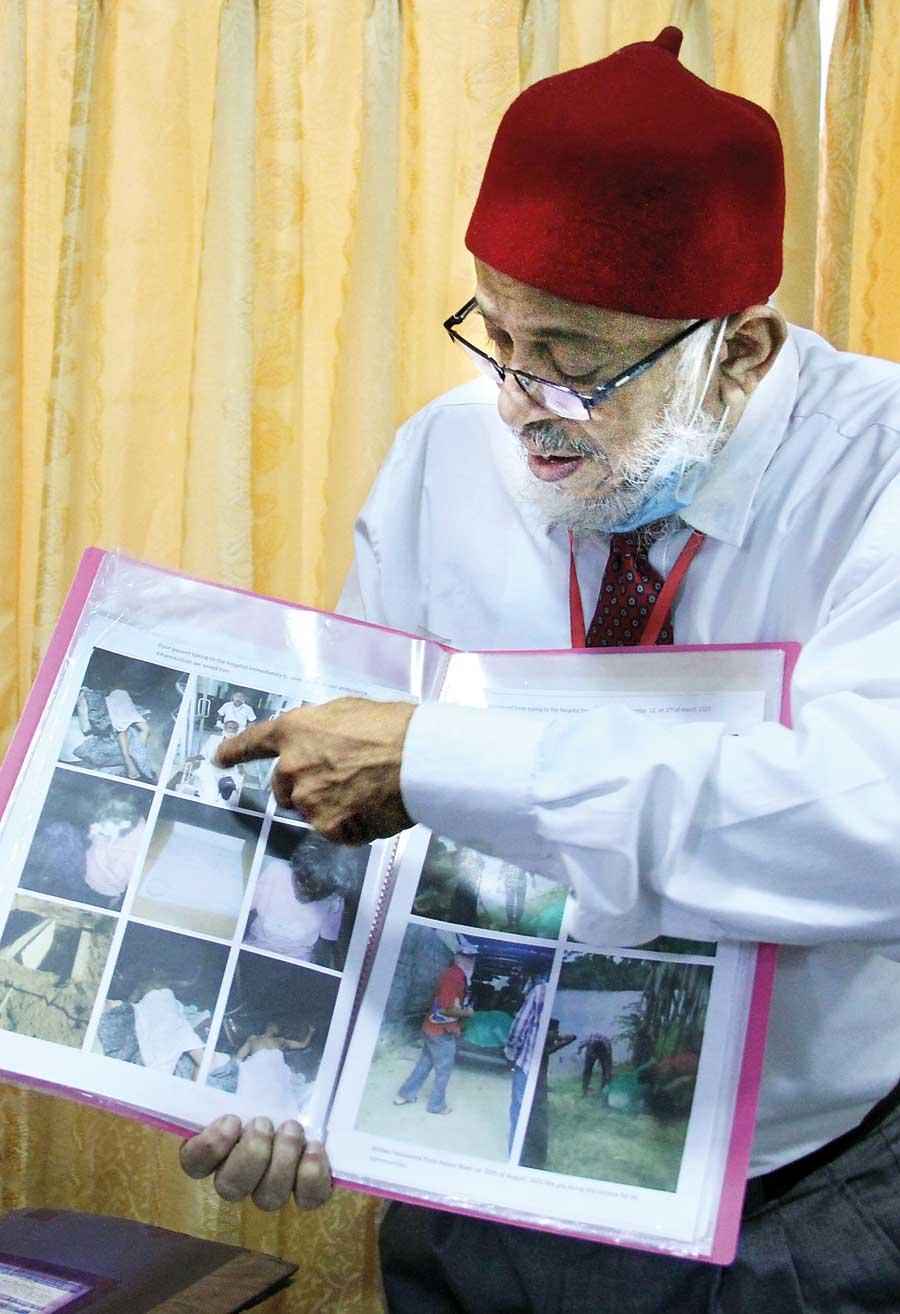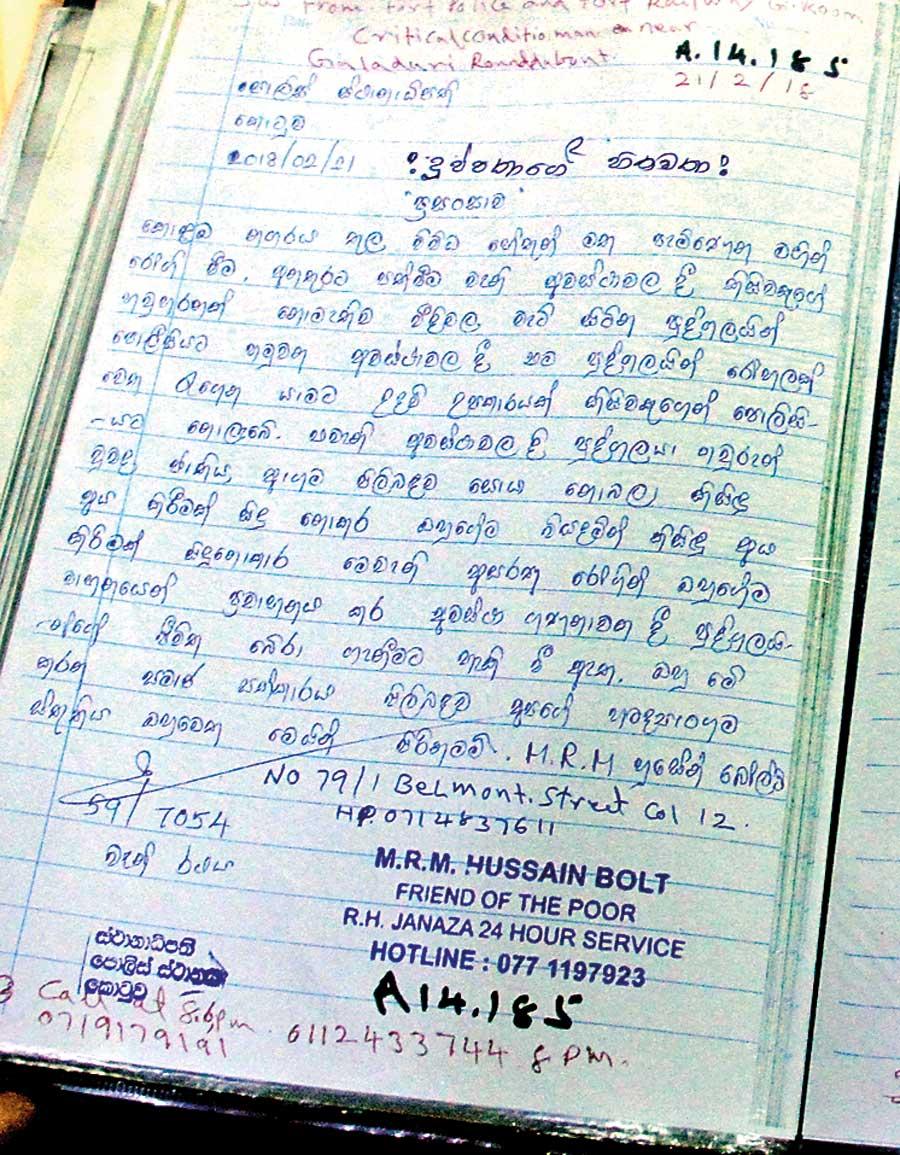11 Nov 2021 - {{hitsCtrl.values.hits}}

In 1974, Hussain started a voluntary Janaza service (Islamic funeral ritual) to give strangers a dignified burial. PIC BY Pradeep Dilruckshana
- Over the past 47 years, Hussain has buried more than 14,000 unclaimed bodies
- Sri Lanka has no central database, national policy or standard procedures to help identify human remains that have no claimants. An interim report by Office on Missing Persons (OMP) in 2018 also drew attention to this problem
After their death, most people are memorialized at a service, surrounded by grieving family members, friends and relatives. But that is not the case for everyone. For some, to be surrounded by friends or family and have a dignified death would be a privilege. For the others, there are no mourners to mourn, no family to be pained by their loss, or no friends to mark the passing of a cherished life.
M.R.M. Hussain known as Hussain Bolt has long been involved in identifying resources and making final arrangements for those people who die without a next of kin. They may be unknown to the community, or their body may be unclaimed for burial. But none of this matters to Hussain.
"Whether known or unknown, every life matters," Hussain told the Daily Mirror.
In 1974, Hussain started a voluntary Janaza service (Islamic funeral ritual) to give strangers a dignified burial. Since then Hussain had been burying hundreds of people who die every year, with no family to call their own and without money.
When a person’s corpse is unidentified or unclaimed, the body is handed over to the police in order to find the next of kin. If that next of kin waives all claim to the body and if the body is not subject to further inquiries, then Hussain and his team accept it to proceed with the burial service.
According to data collected by his team, over the past 47 years, Hussain has buried more than 14,000 unclaimed bodies, he told the Daily Mirror. What he is most proud of, Hussain said, was that he had conducted the final rites of people belonging to all classes, races and religions, charging no fee at all.
“Lord Buddha has preached that we should live in a manner where we help the people. Even in our religion, we have been taught the same. To me, there are only two types of people in this world – men and women. We are all brothers and sisters of one big family,” said Hussain.
Asked about what drove him to carry out this meritorious act of service, Hussain said that it only seemed like a
|
What Hussain is most proud of is that he has performed the last rites for people of all the classes, races and religions |
natural choice. “A mortuary was located nearby our house in Ward Place. I used to go there and see how work is done in the mortuary. My grandfather had also been doing the same Janaza service for many years. When I was small, I told myself that I too would continue what my grandfather had been doing,” he said.
Most often, Hussain and his team end up with the bodies of the homeless or victims of accidents; bodies that are never identified. "Sometimes we find bodies in rivers, canals, or on railway tracks. We sometimes deal with decomposed bodies too. It was us who transported the headless body of a woman found in a suitcase in Dam Street earlier this year.”
In order to avoid unnecessary legal issues when it comes to murder cases or suspected murder cases, Hussain now makes sure that an area police officer is present when he transports such bodies.
“I have had to go to courts to give statements regarding suspected murder cases as a witness to the scene of crime since I am the first to arrive in such places. Therefore, I now make sure I go with a police officer or wait till the police arrive at the scene of the crime,” Hussain explained.
Hussain went on to show us a letter of gratitude written by a former Fort Police OIC to Hussain in 2018. In the letter, the officer had praised Hussain and detailed how important his service was for the helpless people who died.
“The Police receive no support from any parties to transport the bodies of beggars and many other helpless people in the Colombo Fort area to a nearby hospital. In such occasions, Hussain had been transporting the bodies and those of the severely injured people in road accidents regardless of their race, religion or class. He had also been able to save many lives due to his prompt action to rush the injured to treatment centers,” the letter stated.
Hussain said that in his heart he had always felt a sense of satisfaction from doing the service that nothing else would ever give him. “I want a team of young people to continue what I have been doing. That is why I started a foundation named after me," he said.
Sri Lanka has a population of almost 22 million people and the country boasts a relatively low crime rate. Yet, inside Colombo City and across the country, Sri Lanka has many homeless individuals. Though exact numbers of the homeless population in Sri Lanka are unavailable, 1.5 million Sri Lankans do not own land for themselves, a factor that certainly impacts homelessness. The homeless occupy bus stops and street corners around Colombo City and are often located in rural regions. Homelessness in Sri Lanka remains one of the most visible, yet unaddressed, forms of poverty in the country.
Sri Lanka has no central database, national policy or standard procedures to help identify human remains that have no claimants. An interim report by Office on Missing Persons (OMP) in 2018 also drew attention to this problem. “In order to guarantee proper identification of human remains, on-going reforms must be expedited to the legal framework pertaining to the inquests into deaths and related protocols, and ensure a multidisciplinary coordination system between institutions responsible for search, recovery and identification,” the report stated.
Ever since the pandemic struck, Hussain and his team have been facing challenges in staying safe while helping the helpless. He said that his team followed the specified precautions when dealing with bodies of people.

Most often, Hussain and his team end up with the bodies of the homeless or accidents who are never identified. ‘We find bodies in rivers, canals, on railway tracks.

If the next of kin waives all claim to the body and had if the body is not subject to further inquiries, then Hussain and his team accepts it to proceed with the burial service

A Former Fort Police OIC in a letter of gratitude detailed why Hussain’s service is important for the community
26 Apr 2024 5 hours ago
26 Apr 2024 6 hours ago
25 Apr 2024 7 hours ago
25 Apr 2024 8 hours ago